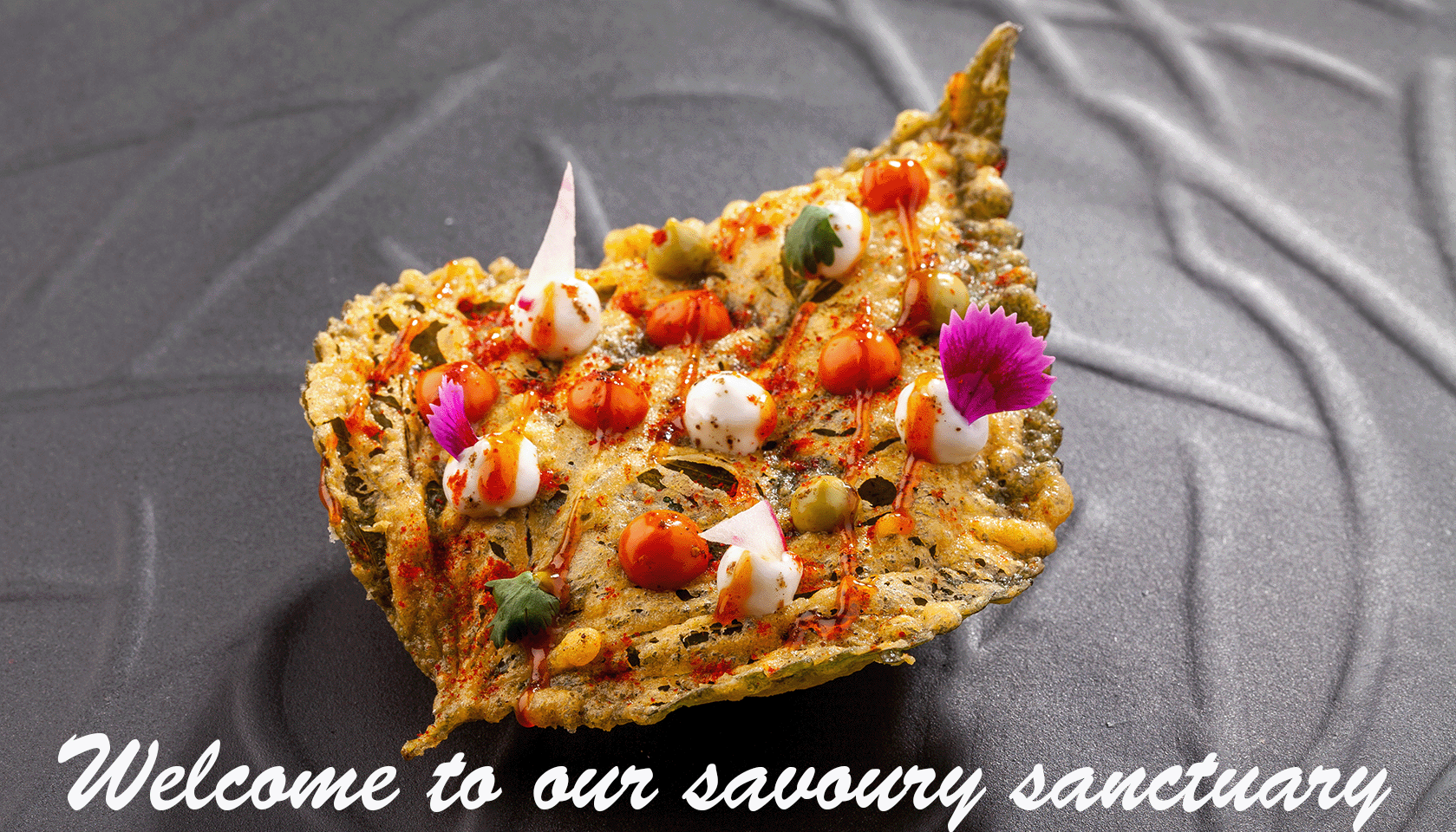Namaste!
Welcome to our savory sanctuary, where we invite you to indulge in the rich and diverse culinary heritage of India. We want to take you on delectable journeys and immersive food experiences to discover India through her many cuisines. From the bustling spice markets of Delhi to the serene tea plantations of Kerala, our luxury culinary tours are designed for those who crave both adventure and indulgence. Thank you for subscribing to our newsletter and letting us share our love of food and travel with you. I hope you enjoy this November edition of our newsletter.
The image above is a dish called “’Black Rice Farra | Jakhiya | Grillo”. It is a popular dish of the new menu at Masque, a fine dining restaurant in Mumbai. Farra is steamed rice dumplings stuffed with lentils, tempered in Jakhiya (wild mustard seeds) and the sauce is an emulsion of Grillo wine and butter. It is simple, yet comfort food served in a fine-dining kind of way.
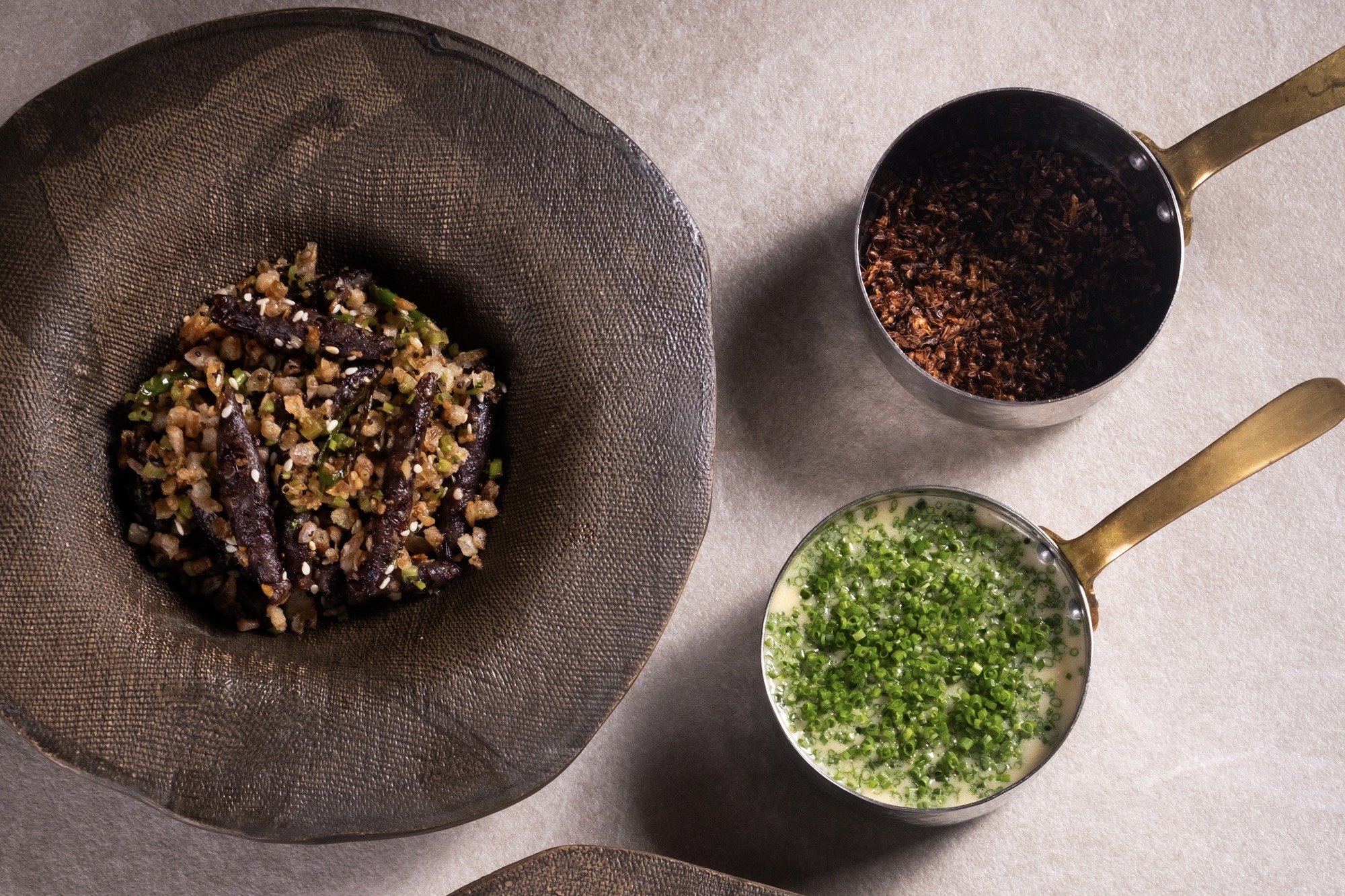
Masque is the recipient of many accolades and awards, one of them being the best restaurant in India for 3 years in a row, Asia’s top 50 and in May this year Masque made its debut on the world stage at the World’s 50 Best Restaurants 2024. We had a chat with Aditi Dugar, founder of Masque about a few of her favourite things… you can read more about it in the interview section below.
We can’t wait to experience their 10-course tasting menu when we are in Mumbai on our Diwali tour. We love that their menu showcases India’s rich produce, and they are taking Indian cuisine to the global stage. Dining at Masque is indeed the best way to discover India through her many cuisines. I am grateful to Aditi for the opportunity to collab with them and look forward to seeing her, Chef Varun and the team at Masque every time we are in Mumbai.
DESTINATION SPOTLIGHT
RISHIKESH
Nestled in the foothills of the Himalayas along the banks of the sacred Ganges River, Rishikesh is a mesmerizing destination that offers a unique blend of spirituality, nature, and adventure. Whether you’re seeking inner peace and spiritual rejuvenation or adrenaline-pumping activities, this quaint town has something for everyone.
Rishikesh has a rich history deeply rooted in Hindu mythology and spirituality. The name is believed to be derived from “Rishi” (sage) and “Kesh” (hair), referring to the matted locks of sages who meditated there since hundreds of years. Today Rishikesh remains an important spiritual center, pilgrimage site, and tourist destination, known for its temples, ashrams and yoga retreats.
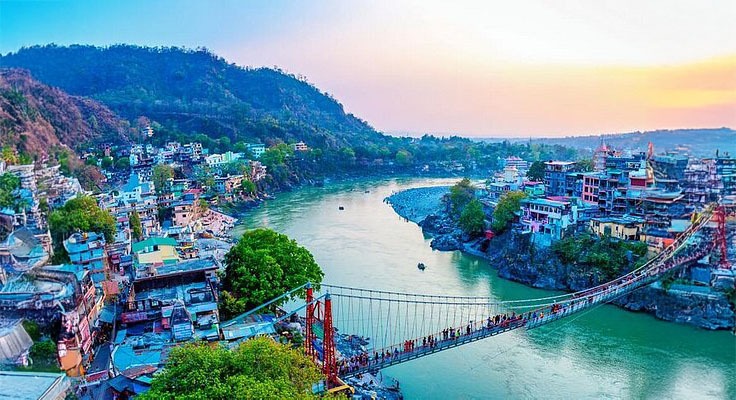
Talking of Yoga retreats, our next tour planned in February 2025 is the Balance Retreat to Rishikesh. It is hosted by wellness coach Rachel Grunwell and this retreat is the perfect balance of wellness in Rishikesh, followed by culinary experiences in Delhi, Agra and Jaipur.
Just 20 km down the road is Haridwar, another spiritual hotspot which hosts a significant Hindu pilgrimage called Kumbh Mela every 12 years that is attended by over 100 million ardent devotees.
The Beatles had a close connection with Rishikesh. In 1968, The Beatles stayed at an Ashram in Rishikesh, where they practiced transcendental meditation and composed many of their songs. Today, the ashram is a spiritual retreat and a popular tourist spot known as The Beatles Ashram, decorated with vibrant murals and offering an atmosphere of nostalgia and creativity.
FESTIVALS OF INDIA
Diwali, also known as Deepavali, is one of the most celebrated festivals in India, symbolizing the triumph of light over darkness, good over evil, and knowledge over ignorance. The festival is rooted in Hindu mythology, particularly the return of Lord Rama to Ayodhya after a 14-year exile, during which he defeated the demon king Ravana. To celebrate his return, the people of Ayodhya lit oil lamps made of clay (diyas), which has since become a key part of Diwali celebrations.
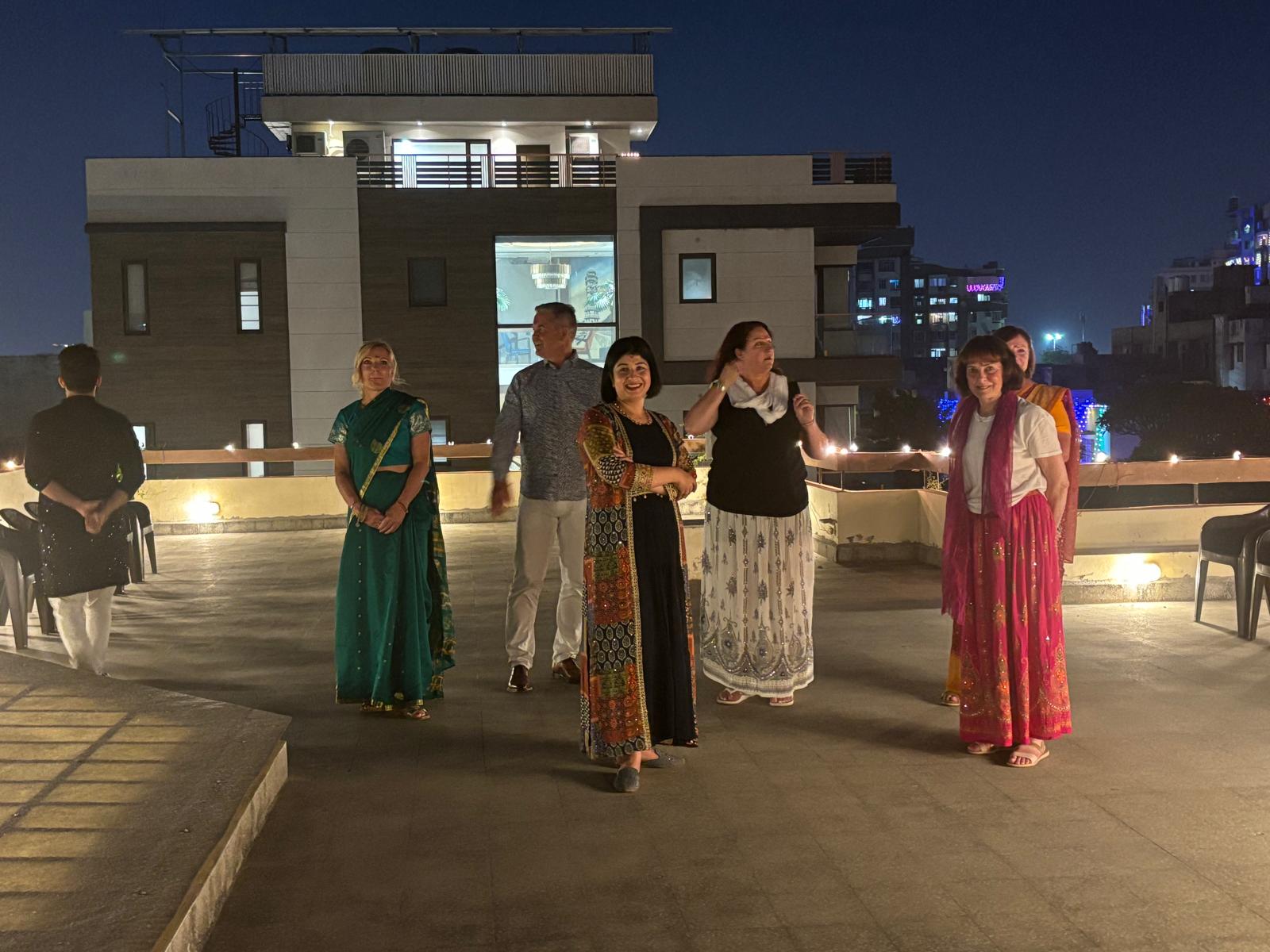
It usually falls between October and November and lasts for five days, with each day holding unique cultural and spiritual significance. This year Diwali was from 29th October to 2nd November. Schools across India are out for for a couple of weeks for ‘Diwali holidays’, offices are shut and the excitement in shopping malls and neighbourhoods is palpable. While customs vary across regions, the spirit of togetherness and renewal is central to Diwali celebrations throughout India.
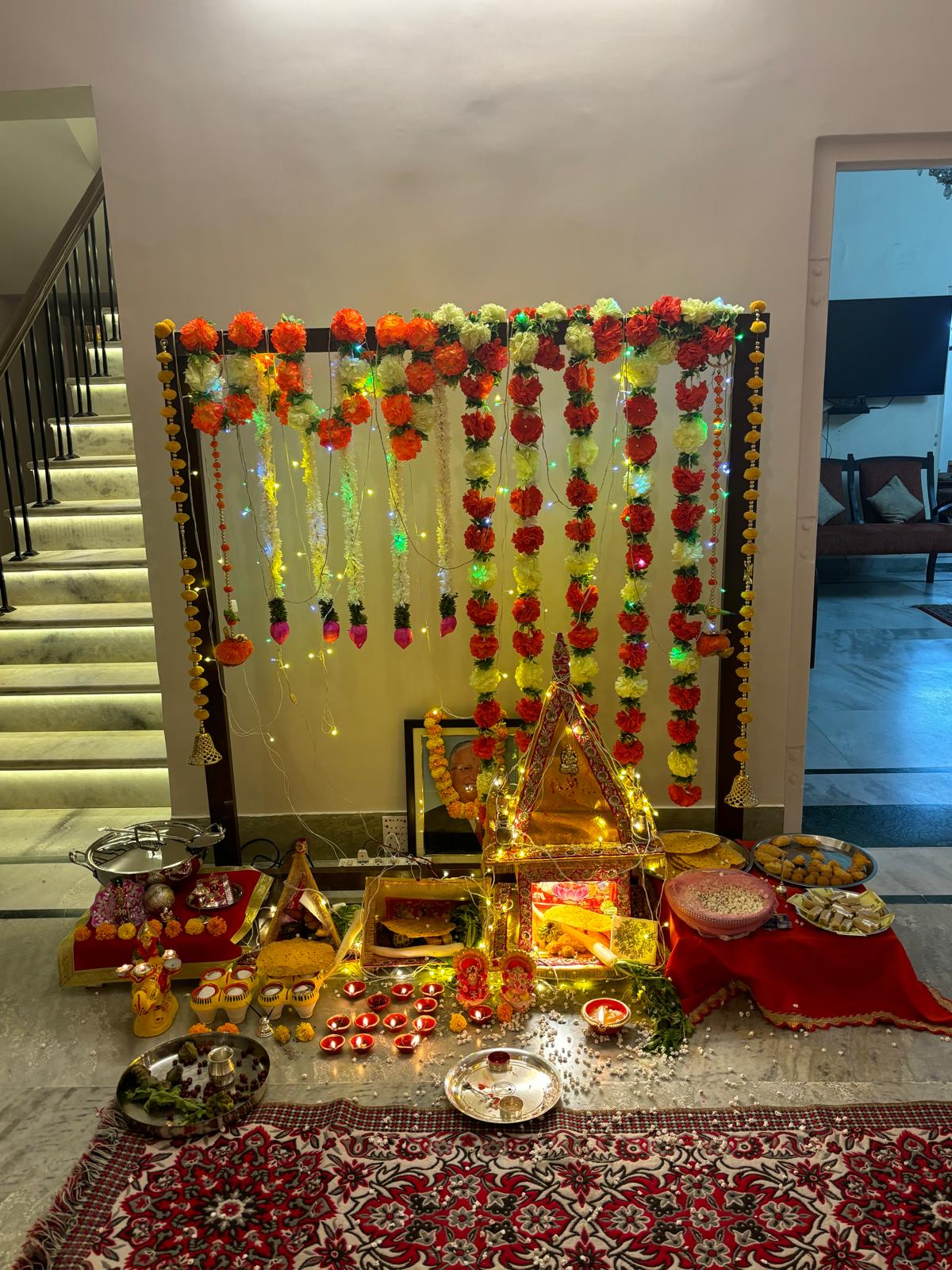
Beyond its religious importance, Diwali is a time for joy, togetherness, and renewal. Families exchange sweets and gifts, making it a beautiful occasion to strengthen bonds and spread happiness. The night sky is filled with fireworks, and people burst firecrackers, believing it drives away evil spirits. As the Indian diaspora has spread worldwide, Diwali celebrations have become increasingly global. Many countries now recognize and celebrate this festiva lof lights, making it a symbol of India’s cultural influence and the universal appeal of its message of hope and renewal.
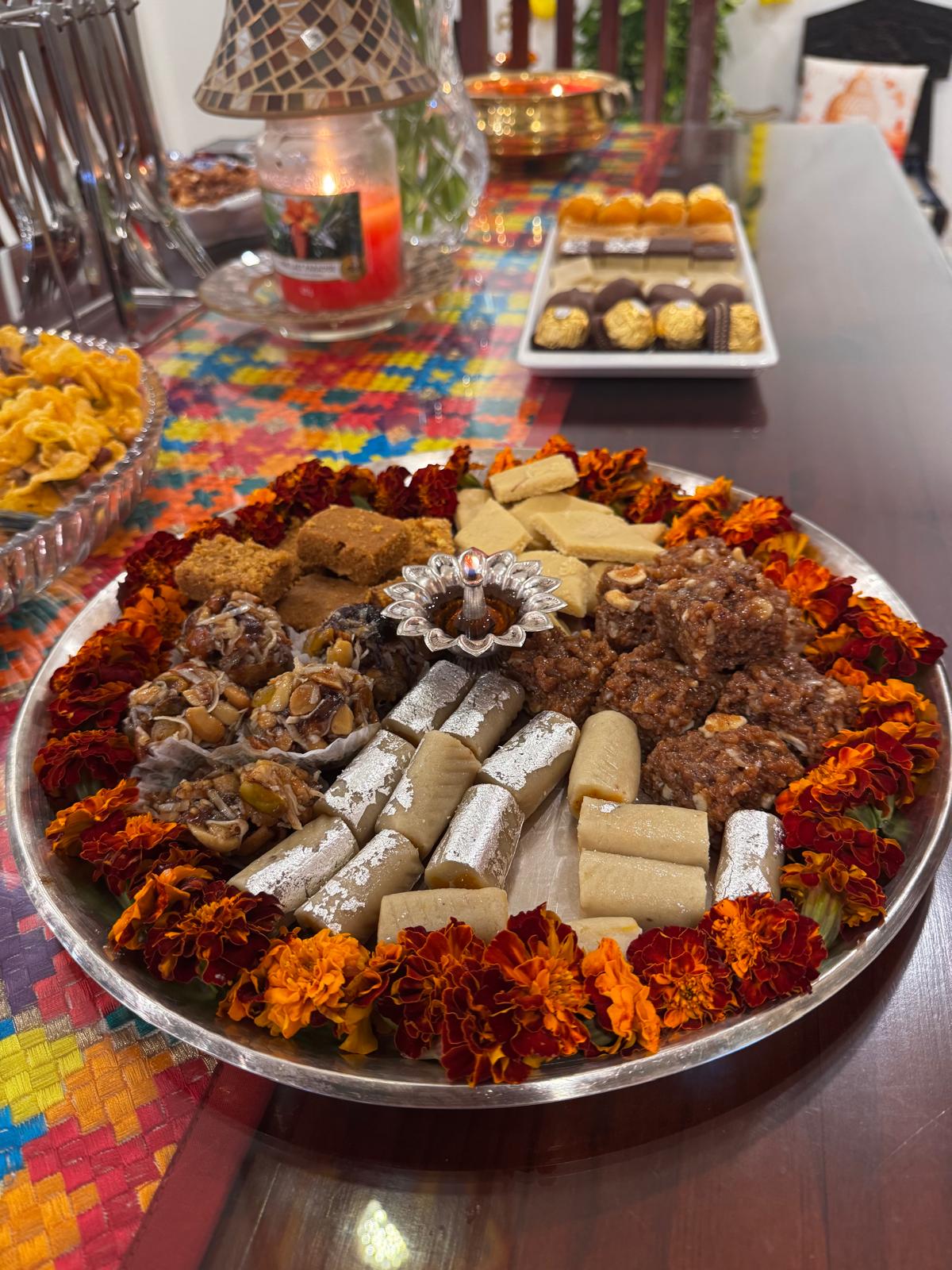
It is the perfect time to visit India as the entire country lights up in festivities and the weather is perfect going into winter. Our group with Chand Sahrawat thoroughly enjoyed the traditional festivities of Diwali in Jaipur at a friend’s house. Dressed up in Indian ethnic wear, we lit oil lamps made of clay, burst firecrackers, prayed to Goddess Laksmi (Goddess of wealth) and the authentic traditional food was just amazing. Here are some photos of the evening.
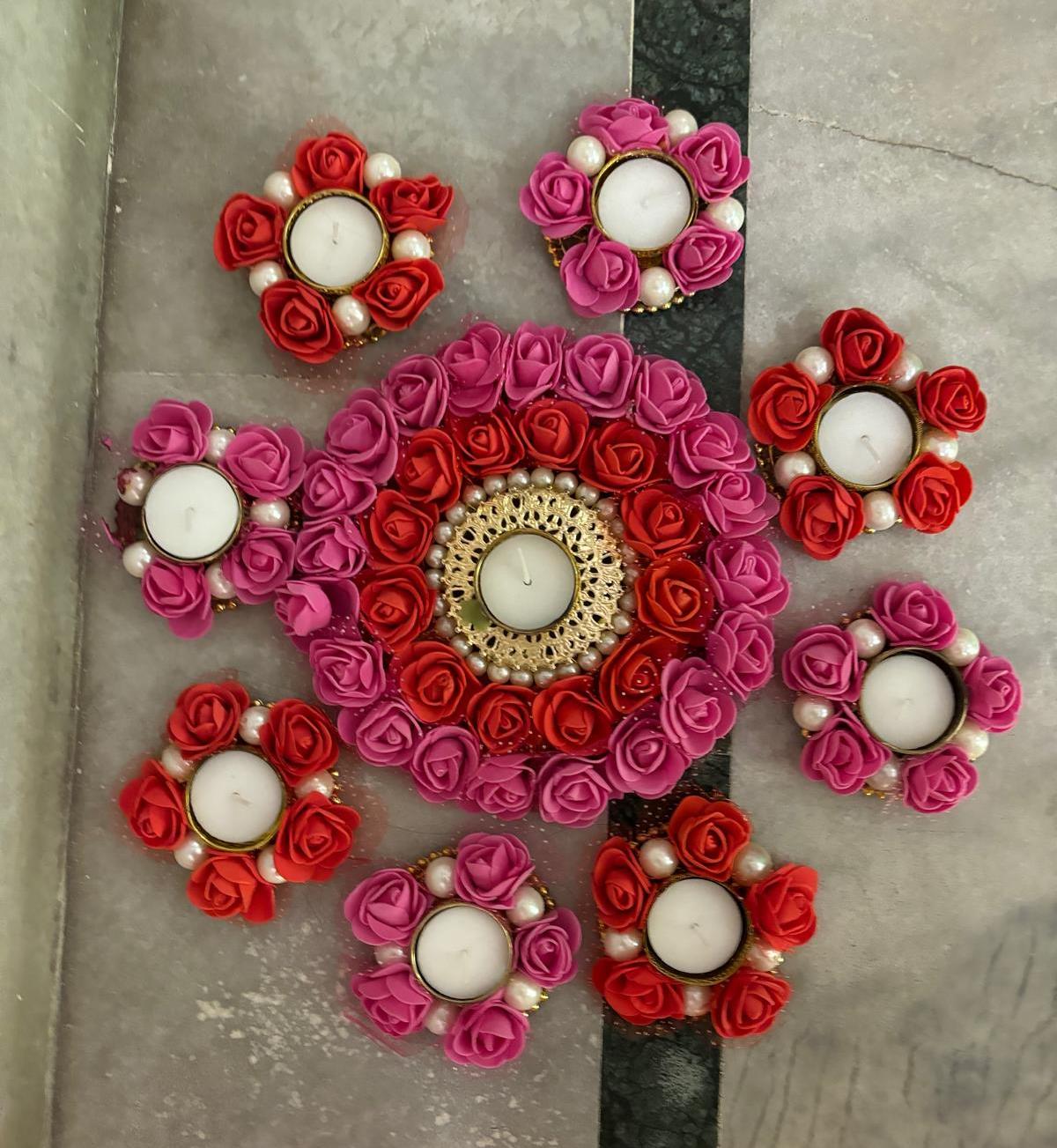
INTERVIEW
Aditi Dugar is the Director and Founder of Masque Restaurant in Mumbai. The inspiration behind Masque has been the culinary delights she has experienced in her travels around the world.
Here’s an excerpt of Aditi’s article in Travel and Leisure magazine: In a world where travel is evolving everyday, culinary travel is emerging as the future for several reasons – it allows travellers to connect with a destination on a deeper level, savouring its essence through the palate. Culinary travel breaks barriers and builds bridges between people from different backgrounds and cultures. There will be a surge in food and travel partnerships – something we are already looking at in Masque, where we plan to collaborate with travel companies to offer curated culinary journeys and weave in storytelling at the restaurant.

Aditi’s views about food and travel and how it brings people together resonates with us at Good Food Journeys. And that is the reason why dining at Masque is a must do in all our itineraries. It is a fine dining sensory experience you won’t forget in a hurry. Read more about her inspiration behind creating the best restaurant in India.
What is your earliest memory of cooking?
I started baking at about 16, which is pretty much my earliest cooking memory. I used to hang around my mum’s kitchen while she cooked and I slowly started baking with her. I have a funny memory associated with this too: I remember my first ever cake being fed to cows at my grandfather’s house!
What is the most memorable meal you’ve ever had, and where was it?
Noma had always been at the top of my wishlist. My first time there was truly unforgettable – it’s truly a once-in-a-lifetime experience. I am also crazy about pizza, so another standout, memorable meal was at The Pizza Bar on The 38th in Tokyo.
What is your favourite dish on your restaurant menu?
Our menu is ever-changing, and with each new release, there are always a few highlights that call out to me. I love the balance Chef Varun Totlani and his teams create in Masque’s tasting menus. Having said that, the sorbet courses are my all-time favourite across all the menus in the restaurant; it’s mostly because I really love sour flavours!
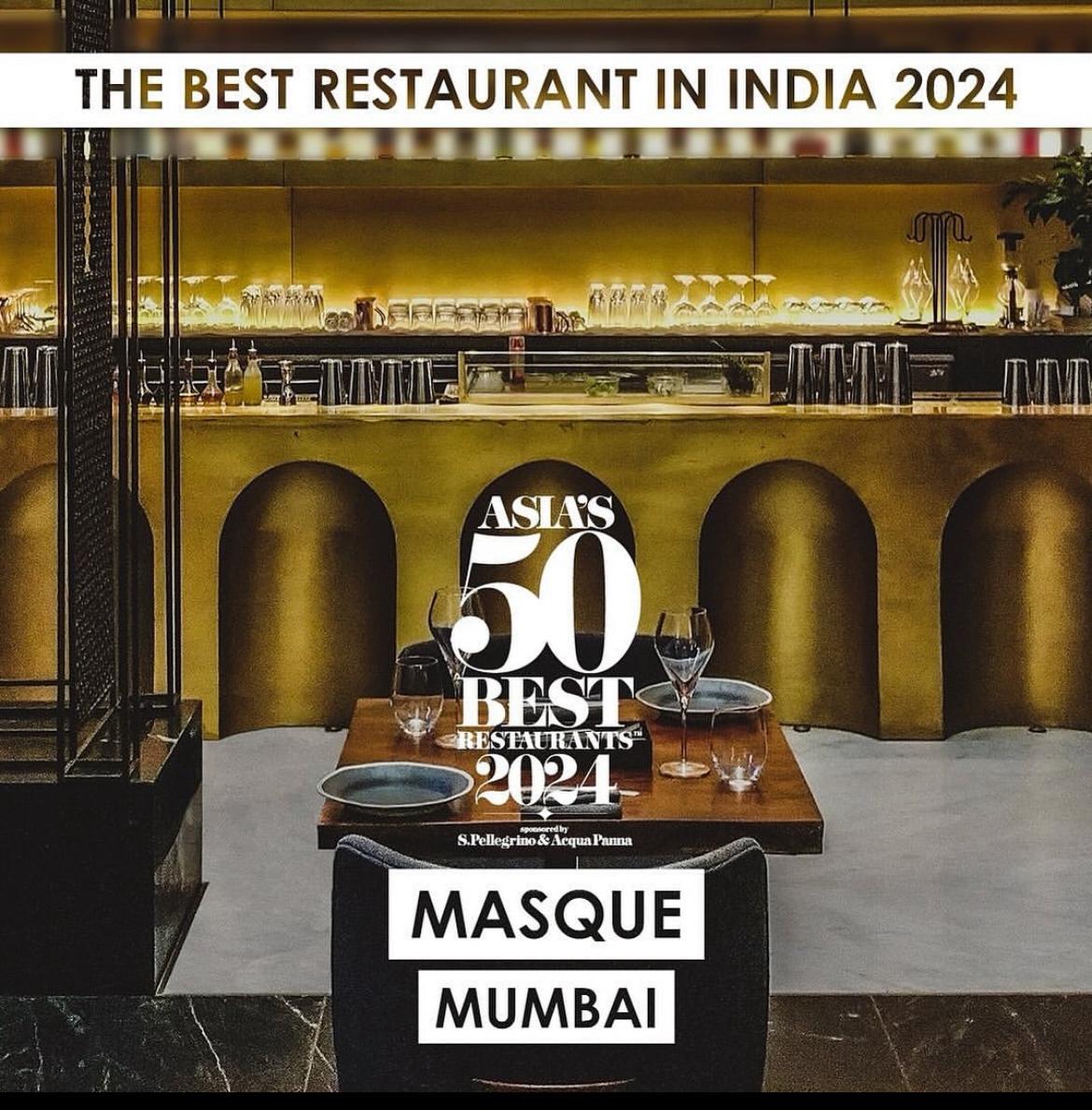
Who is your culinary hero?
I’d have to say Daniel Humm (Eleven Madison Park) and Yotam Ottolenghi (Ottolenghi). They’re both masters in their own right, and I love how they play with flavours and elevate simple ingredients to something extraordinary.
What is your favourite holiday destination in the world?
Japan, hands down. I’m obsessed with its incredible food culture and the thrill of skiing there. Nothing beats soaking in an onsen after a long day.
What’s a current food trend that you are excited about?
I’m really into the whole speakeasy vibe and the trend of globally-inspired small plates. It’s fun to see how different cultures come together on a single plate or in a secret bar!
What’s the most unusual food combination you secretly enjoy?
You asked for it, so don’t judge me! I love toast with cheese, chilli, mango and honey. Oh, and cream cheese with methi masala and mango – it’s weirdly addictive.
FROM THE SPICE RACK
This month we are shining the spotlight on Fenugreek seeds.
Fenugreek seeds, known as ‘methi dana’ in India, are a versatile and flavorful ingredient widely used in Indian cuisine. They have a distinct flavor profile of slightly bitter taste with a nutty undertone. It adds depth and complexity to dishes and is often described as having a maple syrup-like aroma when cooked.
Fenugreek seeds are an essential component of Indian cuisine, contributing unique flavors and aromas to a wide range of dishes.

They are used in both whole and ground forms across various regional dishes and have culinary as well as medicinal significance. Here are a few ways fenugreek seeds are used in Indian cooking and Indian households:
1. Tadka (Tempering)
Fenugreek seeds are often used in the tempering (tadka) process, where whole seeds are fried in hot oil or ghee along with other spices like mustard seeds, cumin, and curry leaves. This tempered oil is then added to dals (lentil soups), curries, and chutneys to enhance the flavor. Fenugreek seeds impart a unique, slightly nutty bitterness.
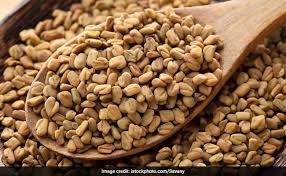
2. Pickles (Achar)
Fenugreek seeds are a common ingredient in many Indian pickles, especially mango or lime pickles. They help preserve the pickle while contributing to its flavor profile. The seeds’ slight bitterness is balanced by the spices and sourness of the pickles.
3. Curries and Sauces
Ground fenugreek seeds are used to thicken curries and give them a rich texture. In dishes like Kadhi (a yogurt-based curry) or Rajasthani Dal, fenugreek seeds bring an earthy, spicy depth. Their bitterness can enhance the other flavors in the dish, particularly when combined with other spices like turmeric and coriander.
4. Fenugreek in Breads
In some regions, ground fenugreek seeds are used in Indian flatbreads, like methi paratha, where the seeds are mixed with dough to give a subtle, aromatic bitterness. The leaves (fenugreek greens) are also used in breads for a more intense flavor.
5. Health and Medicinal Uses
Rich in vitamins and minerals, including iron, magnesium, and calcium, Fenugreek seeds also contain antioxidants and anti-inflammatory properties. Regular use aids in digestion, help regulate blood sugar levels, and even promote lactation for nursing mothers. As a result, it’s often added to herbal teas or included in home remedies such as soaking in water overnight and drinking the water first thing in the morning.
If you liked the newsletter, it would be awesome if you could forward this to friends and family who may enjoy reading it.




